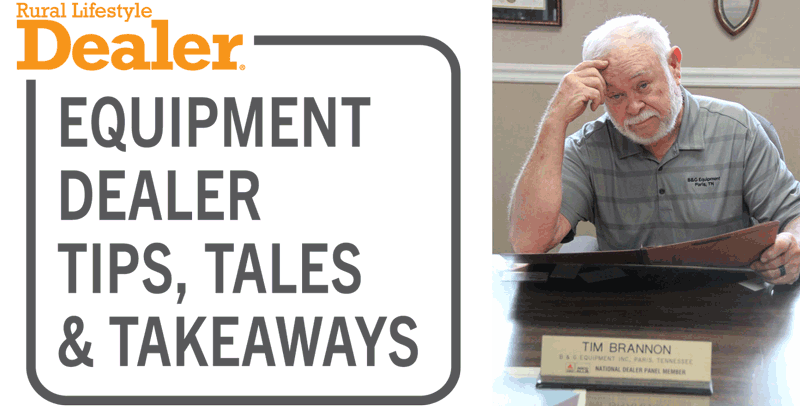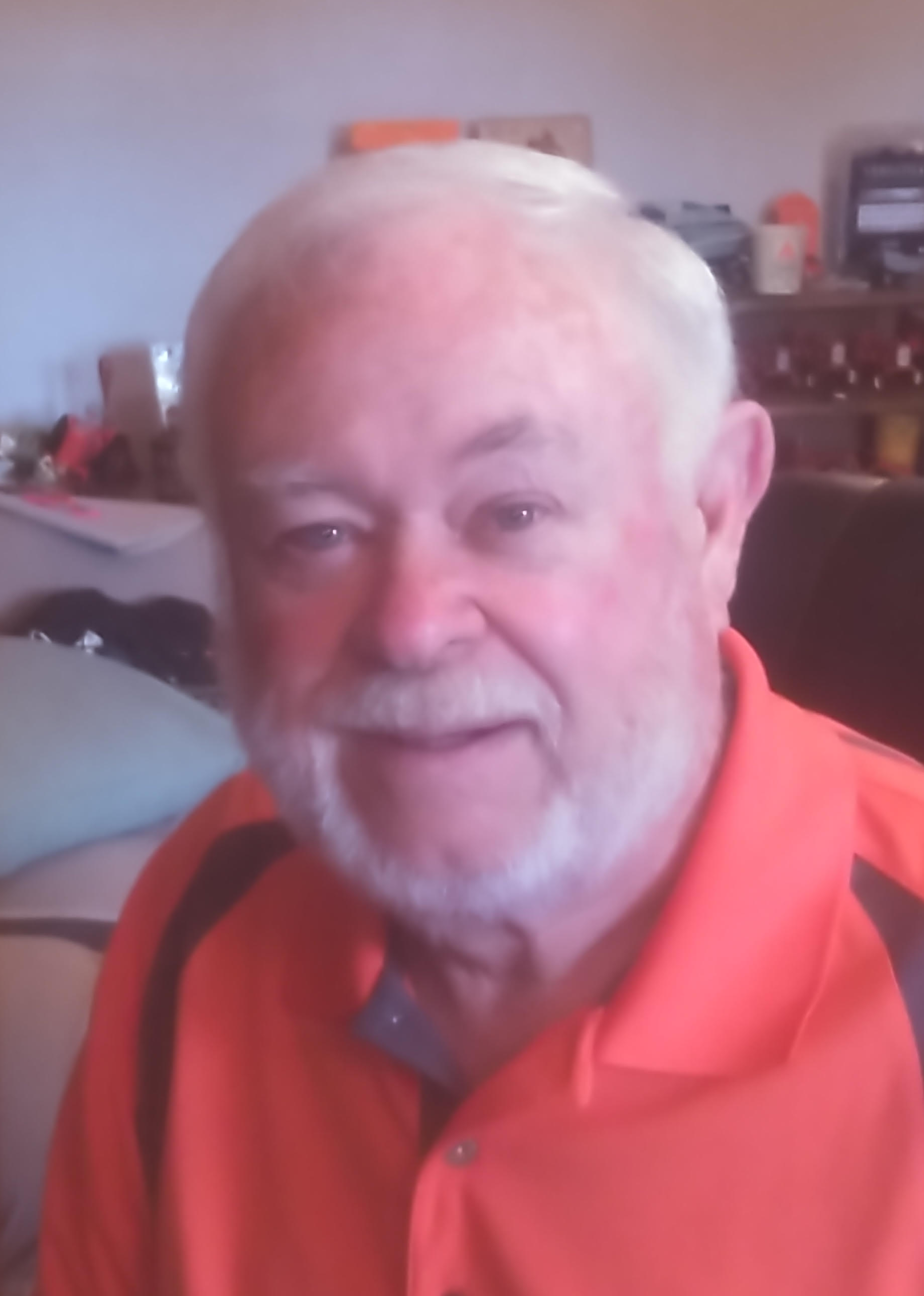Allis-Chalmers pioneered a marketing program during the 1970s using a medium that was designed specifically to secure the attention of the “male” North American agriculturist. It used a troupe of “Expo Gals” to promote Allis-Chalmers farm equipment. The program came under the wing of none other than Norm Swinford, the author of several ag-related history books, and started with three young ladies — Ginny Haberman, Jan Fazio (Valo) and Marion Ross — who sang and danced their way across the U.S. and Canada at trade shows and other events promoting farm machinery.
For those of you who were not around to witness these, let me describe the scene. Picture an event, such as the National Farm Machinery Show in Louisville, Ky., circa 1975. Loads of tractors, planters, implements and combines are on display inside the wings of Freedom Hall. Amid the display of the orange and silver crew, there is a low stage, three rear projection screens, slide projection equipment with dissolve units (really cutting-edge technology for the day) and a couple of 16mm movie projectors.

These were the first Expo Ladies, before my time. Two went on to other things, leaving Ginny as the Sr. "Gal." Not a bad term in those days.
A large clock with “Next Show Starts At” is nearby with the time for the next show listed. About 15 minutes before the show, the chairs fill up with interested farmers, foot weary show goers and always a crowd of teenage boys elbowing for standing room at the rear. Then, at showtime, some less-than-handsome Allis-Chalmers company operative (sorry Norm) grabs a microphone, asks the crowd if they are ready and introduces what most would describe as the prettiest young lass (Expo Gal) who ever sold a tractor. As the music starts, she gracefully dances — or seemingly floats — in front of the screens, which blend from one beautiful picture to another. The young lady captivates the audience with her impressive knowledge of the entire array of Allis-Chalmers products, production plants and personnel that she insists the audience must have if they are true red-blooded Americans — or whatever-color-blooded Canadians.
Behind the scenes and screens sits a “tech man,” usually a poor, previously unsuspecting block man (territory sales manager) pressed into duty by the luck of the short straw draw. His job is to simply “press the buttons” while the Expo Gal effortlessly graces the stage. He sits unseen by the throngs, amidst 37 miles of coaxial cable, 2 miles of extension cords, a panel with 14 buttons, two remote projector switches and a pile of tissues to wipe the sweat produced by the hellish blast generated by 3 dissolve units, 6 projectors, the movie machines and a tube-type PA system.
If all goes well, he will go silently into the night, never to be noticed or applauded. However, if the Expo Gal points to the screen and says, “We can fit your needs for tractors from 21 to 305 PTO horsepower” and a picture of a WPA outhouse pops up — which was supposed to be the setup for the next joke (nothing smells like a “John”) — there is usually a gentle prompt from the lass to go back one slide. At this point, the tech man, who was totally lost, starts pressing buttons in a fashion unrivaled by Liberace or Jerry Lee Lewis. As trained, she stops and does an impromptu interview with a farmer while the panic-stricken button-whacker gets hold of himself, resets the projection slide to the script prompts, gets the blood pressure down to triple digits and whispers to the gal in a voice heard all the way in Milwaukee, “I think I got ‘er fixed for you now.” The tech man receives a roll of the eyes and becomes the focus of the crowd’s anger for screwing up the program.
I mention the interviews because many a loyal orange customer would come to the company people and complain that they never, never interviewed an Allis owner — they always picked a red, green, blue or white customer. There was a reason for this. First, if she picked an Allis owner and asked him a question and he responded negatively, we were dead. Secondly, if it were an Allis-Chalmers man – always a man, and the goofier looking the better – and he told how good the product was, people would not believe it and say he was a “plant.”
Finally, it took away the ability to use all the funny lines they had to totally stump the interviewee. Many a male who stood in front of the crowd and looked into the flashing eyelashes of an Expo Gal turned into a blabbering idiot as she held his hand or gently caressed his arm, saying, “Ooh what muscles – you get that from driving that green tractor – is it that hard to steer?” Or even worse, if the participant was follicle-ly challenged, she would twirl what hair he had left and ask, “So you’ve got a Case — a case of what?” or “You are a red man, huh? Well, you are turning red, is that why call you that?” The lines were many and the audience usually roared with laughter. It was goodwill and left a positive image of the product and presentation.
Back to the show. Now that the tech man has his wits about him, again the script and songs would lead into a short propaganda film, at which time Expo Gal takes a short break. The tech man prays to heaven she does not have a loaded weapon. By now, the touring troupe are used to such blunders and pay him no mind. Instead, she smiles and tries to instill a level of confidence that she prays will allow the show to finish without further incident. The ladies of Allis were professionals.
After a few loops of the trade circuit, Norm and the gals decide they need a few dedicated “tech men” for the shows to eliminate stress for the ladies and improve the quality of the presentation. I have no idea how many techs were selected, but I know as an unmarried, rookie Allis-Chalmers employee, I received a call from the Memphis region sales manager Felix Patterson. After listening to his instructions for a few minutes, I replied, “You want me to do WHAT?” This was followed by a day of training, a conference call (difficult in that day) with Jenny and Norm and a follow up letter. As a “tech man,” we were to be father, protector of the virtue, guardian, electrical wizard, travel agent, booking agent, chauffeur, roadie and a bunch of other words I had to look up. The letter stated that if in any way there was any impropriety, I would be immediately terminated, cremated and the ashes would be fired, as well. It made me take note that I needed a paycheck. Remember, I was up to $10,400 per year as a rookie.
The second season I was to travel the expo circuit, the home office took a different approach to the ladies' support staff. In my case, they hired Miss Tennessee and had her travel the southeastern U.S. I was instructed to pick her up, rehearse the new show and hit the road. We decided to use the meeting room in the Memphis region office. I traveled to her house and knocked on the front door. From inside was a gruff “come in.” I entered the house to find pop sitting reading the newspaper. “You here for Mary?” he asked. I said in my most professional voice, “Yes sir, Allis-Chalmers is proud to employ your daughter to help us promote our company.”
“Allis-Chalmers?” he said as he crumpled the paper in his lap. “I thought she said, ‘Alice Charmers!’ You ain’t no beauty school. You guys make bulldozers and stuff. Does she know that?” I stammered, “Well, sir, she was hired out of the home office, so I suppose she did.” Finally, a young lady came into the room and after fifteen minutes of arguing with dad and convincing him she was not about to operate bulldozers, held out her hand and introduced herself as Miss Tennessee. I placed a couple large suitcases in the Oldsmobile Cutlass, and we drove to the region office.
As we came up the long sidewalk, I could see the blinds pulled aside and eyes peering out, as everyone knew Miss Tennessee was soon to arrive. We practiced for two days. She was great, but the script was horrible. It was supposed to be tailored to the South. There were phrases like “cotton combines” and pictures of Gleaners with bat reels in wheat. To her horror after the first run through, I had modified the script with a red pen, and it looked like every paper I ever received back from my professors at Murray State (the only difference was I did not write a big D- at the top).
Marion was sure she would be fired, so we again sought the advice of Felix Patterson. “You do the script this way,” he assured her. “It is exactly what we want. I will take care of Milwaukee.” So, we loaded up and headed out.
Tune in next time for a few stories from that trip, including our two unfortunate situations that required local police assistance…
|
Told from the perspective of an in-the-trenches owner/operator — Tim Brannon of B&G Equipment, Paris, Tenn. — Equipment Dealer Tips, Tales & Takeaways shares knowledge, experiences and tips/lessons with fellow rural equipment dealerships throughout North America. Covering all aspects required of an equipment dealership general manager, Brannon will inform, entertain and provide a teachable moment for current — and future — leaders within equipment dealerships. |
 |
More From Tim Brannon
- When Someone 'Moves the Keys' On Your Dealership
- My Days as an OEM ‘Blockman’
- Build Back Gooder
- Fast and Fiery-ous
- Our Industry’s Connection to China: An Optimistic Point of View
Equipment Dealer Tips, Tales & Takeaways is brought to you by the Solectrac.
It’s Solectrac's mission to lead the transition to zero-emissions regenerative agriculture, and utility operations with best-in-class technology for a safer, cleaner and healthier future.







